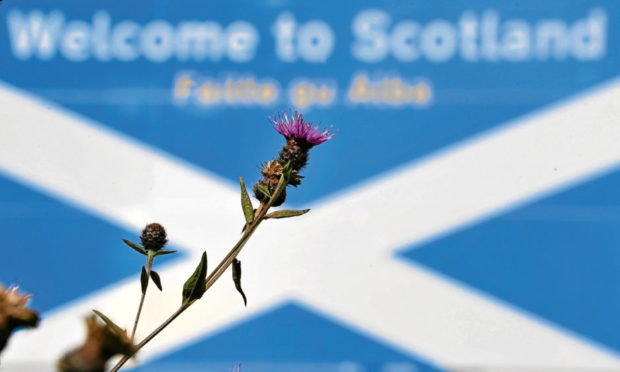Sir, – A number of correspondents have rightly pointed out the threat posed to Scotland’s only truly representative parliament and our world-renowned produce by the United Kingdom Internal Market Bill.
However, the validity of the term, internal market, defined as, “free trading between a group of countries” is surely questionable.
The term can be legitimately applied to the EU, which is truly a single trading bloc with free movement of goods and services.
Nevertheless this arrangement does not result in, for example, French export revenues accrued by trading with Germany being held by Berlin, with a proportion decided solely by their neighbour, returned to them.
The rest being spent by the German government on their behalf.
Since all powers and revenues are held by London, the term “unitary market” would reflect more accurately the UK model, with all economic benefits heading south to our neighbour’s capital and its immediate environs.
We are also warned that Scottish independence would threaten our businesses trading with England at present.
How so? Would an English establishment, keen to trade with every other country in the world, initiate a trade embargo on our goods, replicating the 1705 Aliens Act, employed as a means of bullying Scotland into submission?
Finally, we are repeatedly told that Scotland benefits from a union dividend of £1,941 more in public spending for every man, woman and child in comparison to England. This figure is meaningless and would only be relevant if accompanied by a per capita comparison of economic output by Scotland being set alongside the performance of every man, woman and child in England.
Since no separate Scottish figures are made available to us, being jealously guarded by Whitehall, the suspicion has to be that any such comparison would not favour London’s, “too wee, too poor narrative”.
Ken Clark.
c/o 15 Thorter Way,
Dundee.
Joined-up approach to long-term care
Sir, – Dr Cameron (Economists, ethicists, and public need say, Courier, Otober 2) makes some valid points, though a bit simplified.
The scientific and medical experts advise the politicians from their perspective, but ultimately it is the politicians who weigh up the balance of interest and harms and decide what is to be done.
So his dilemma and its different strands are addressed.
While he may have a debateable point about who should be protected I refer him to the furore surrounding the sad deaths in elderly care homes, some of which were a consequence of them being moved to clear space in hospitals by being taken from one care setting to another.
This of course highlighted the poor but critical standing of carers and their real worth to society, and rightly has generated calls for a more joined up approach to long term care and the NHS.
Nick Cole.
Balmacron Farmhouse,
Meigle.
A big red button would have sufficed
Sir, – Once again I despair as Perth and Kinross Council splurge cash on a scheme without thinking of the unintended consequence of gridlocking the city’s already-troubled traffic system.
While I acknowledge the possibility of pedestrians contracting the virus by pressing the button to activate the crossing, could some council brain-box not have thought of sticking a big red button on top of the existing one which pedestrians could just dunt with an elbow?
Percy Johnstone.
Crieff Road, Perth.
MP’s breach ‘worse’ than Cummings
Sir, – SNP MP Margaret Ferrier’s breach of Covid lockdown rules is significantly more serious than Dominic Cummings – she has potentially endangered the lives of hundreds of people; he did not. He should have resigned. She must.
Martin Redfern.
Melrose, Roxburghshire.










